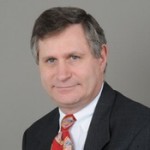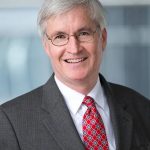In the midst of the first two hearings on reforming patent eligibility law, the Senate IP Subcommittee has published the witness list for next week’s final hearing on Section 101 reform, to be held on Tuesday, June 11. Again, it is decidedly pro-patent compared with previous congressional hearings on patent issues.
As with the first two hearings, the Senators will hear from three separate panels of five witnesses each. The first panel will include Manny Schecter of IBM, who has noted in past articles for IPWatchdog that some of the most groundbreaking inventions of our time would likely fail or be invalidated under the current patent eligibility landscape. He will be joined by Laurie Self, Senior Vice-President and Counsel, Government Affairs, at Qualcomm; Byron Holz, Senior Intellectual Property Rights Licensing Counsel at Nokia; Kimberly Chotkowski, Vice President, Head of Licensing Strategy and Operations at InterDigital; and Sean Reilly, Senior Vice President and Associate General Counsel at the Clearing House Payments Company.
Panel two will include Laurie Hill, Vice President of IP at Genentech, who submitted a letter to USPTO Director Andrei Iancu in March thanking him for his 2019 Revised Patent Subject Matter Eligibility Guidance, but asking him to “develop updated life sciences examples implementing the new framework,” in particular addressing “composition claims and different types of method claims, including fact patterns in which a recited judicial exception is integrated into a practical application and fact patterns that show how additional elements might be included to signal integration of the recited judicial exception into a practical application.” Hill’s fellow panelists will include Sean George of Invitae, whose colleague argued on a briefing call organized by the ACLU on Monday that Myriad’s patents on the tests for the BRCA 1 gene delayed the development of improved tests by seven years, among other examples he provided of patents inhibiting medical innovation; Gonzalez Merino, Vice President and Chief IP Counsel at Regeneron Pharmaceuticals; Peter O’Neill, Executive Director of the Cleveland Clinic, which has gone on record with IPWatchdog to say that “current patent eligibility concerns tend to tip the scales against patenting”; and Dr. David Spetzler, President and Chief Scientific Officer at Caris Life Sciences, a biotech company that focuses on precision medicine.
The final panel of the final hearing will include representatives from the gaming and lottery industries, more pharmaceutical companies, a data compression technology company, and one private practitioner. John Vandenberg of Klarquist Sparkman, LLP authored an amicus brief to the Federal Circuit at the en banc stage of the Alice case in which he argued in favor of the Alice framework. The remaining panelists include Michael Blankstein, Senior Vice President at Scientific Games; Nicholas Dupont, CEO and Executive Chairman at Cyborg, Inc., a data compression technology developer which features the Stephen Hawking quote, “Maybe we should patent the universe and charge everyone royalties for their existence,” on its Intellectual Property page; Corey Salsberg, Vice President, Global Head of IP Affairs at Novartis; and Robert DeBerardine, Chief IP Counsel at Johnson & Johnson.
Later today, the second panel on eligibility law will feature speakers representing industry trade associations, the American Civil Liberties Union, and one individual inventor, among other panelists. Check back tonight for more.

![[IPWatchdog Logo]](https://ipwatchdog.com/wp-content/themes/IPWatchdog%20-%202023/assets/images/temp/logo-small@2x.png)





![[Advertisement]](https://ipwatchdog.com/wp-content/uploads/2024/04/Patent-Litigation-Masters-2024-sidebar-early-bird-ends-Apr-21-last-chance-700x500-1.jpg)

![[Advertisement]](https://ipwatchdog.com/wp-content/uploads/2021/12/WEBINAR-336-x-280-px.png)
![[Advertisement]](https://ipwatchdog.com/wp-content/uploads/2021/12/2021-Patent-Practice-on-Demand-recorded-Feb-2021-336-x-280.jpg)
![[Advertisement]](https://ipwatchdog.com/wp-content/uploads/2021/12/Ad-4-The-Invent-Patent-System™.png)







Join the Discussion
8 comments so far.
Anon
June 10, 2019 04:41 pmAC,
Your logic is still flawed based on my counter.
Sure, the level of infringers may well be different, but that does not clear your attempted argument.
American Cowboy
June 10, 2019 04:08 pmAnon, I did not mean to imply that only companies can infringe.
But the vast majority of the making, using, selling, offering to sell and importing in enough volume to warrant anybody’s attention is done by companies, don’t you think?
Anon
June 10, 2019 01:13 pmAC,
Your logic is faulty.
You act as if ONLY companies may be infringers, and that is simply not so.
I would also modify your “two things” (but only slightly):
1. Express to the Court that the simple clarity already there WAS meant as it is, that the Supreme Court has no business ADDING exceptions to the statutory law (See Schein), and that the additions already added meet all the requirements for the Court to sua sponte reverse itself (See California Franchise Tax Board v. Hyatt).
2. See 1.
American Cowboy
June 10, 2019 10:00 amCompanies may be patent owners and they may be patent infringers, so they have a somewhat watered-down case to call themselves stakeholders in patents.
Inventors, on the other hand, particularly independent inventors, have a pure claim to being a stakeholder.
There are two things that need to be accomplished in this statutory reform, both of which Scotus has made necessary:
1. Provide clarity as to what is and what is not eligible. I think all stakeholders (with the clear exception of attorneys who litigate patents) have an interest in having to have expensive lawsuits to determine eligibility minimized.
2. Define the scope of eligibility broadly enough so that, to paraphrase Abe Lincoln, patents can add the fuel of interest to the fire of genius in ways that benefit the economy of the USA. Excluding subject matter that forms the basis for valuable enterprises defeats this purpose.
Anon
June 8, 2019 08:52 amInteresting point and counterpoint between Benny (sounding in — as typical — the Efficient Infringer mantras) and Jeff.
I would buttress Jeff’s view with the point that the US Sovereign explicitly (and still, even after the AIA) requires the notion of a real person as an inventor AS the”starting point.” (See Stanford v. Roche, unaffected by the changes of the AIA).
Certainly, Big Corp can be seen as “a” stakeholder of sorts, as they certainly want to fashion (and control) just how the (beneficially) disruptive power of the patent may be played out. But just as certainly — and especially since their interests are less to promote innovation and more to maintain their economic dominance which includes being against disruptive innovation — Big Corp cannot be considered as “the” stakeholder.
That would be very much like hiring the fox to be in charge of the henhouse.
Jeff Hardin
June 7, 2019 07:01 pm>> Aren’t they the major stakeholders?
No. When it comes to the discussion of what is patent eligible, the primary stakeholders are the inventors. Without knowing what is patent eligible and without their inventions/discoveries, nothing gets off the ground. This is why their inclusion in the debate is of utmost importance, let alone the fact that they have not been included in several decades, which is largely why the current U.S. patent system is in this predicament in the first place.
Benny
June 6, 2019 05:08 amJeff,
Looks like assignees are well represented, though. Aren’t they the major stakeholders?
Jeff Hardin
June 5, 2019 07:40 pmI’m a little disappointed with these hearings in that of the 45 people selected to speak in the panels, only one inventor – Paul Morinville – was selected. There is clearly a lack of representation by the true stakeholders in this entire domain — the inventors. Congress needs to seek the opinions of inventors; there are inventors who are aware of, and can articulate, the issues. I personally contacted many offices, and repeatedly got redirected to other offices, and after over two weeks of trying to be able to speak, I was told that their list of witnesses had already been filled.
Hopefully Congress will give weight to the inventor in this ever-so-important debate.